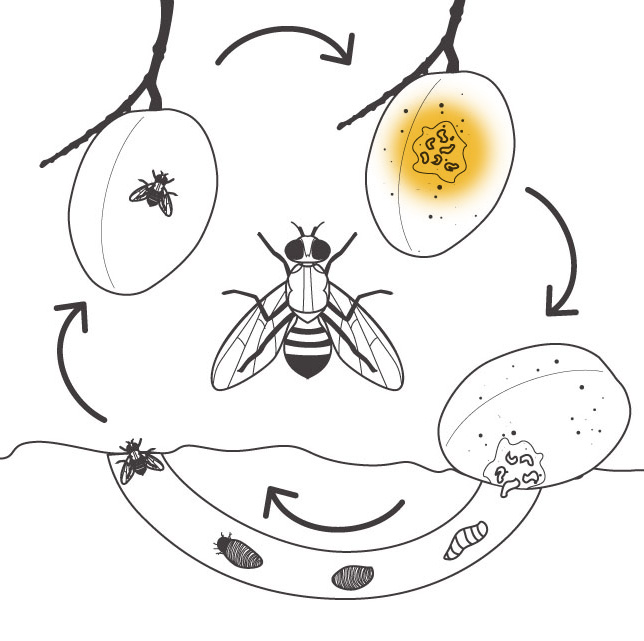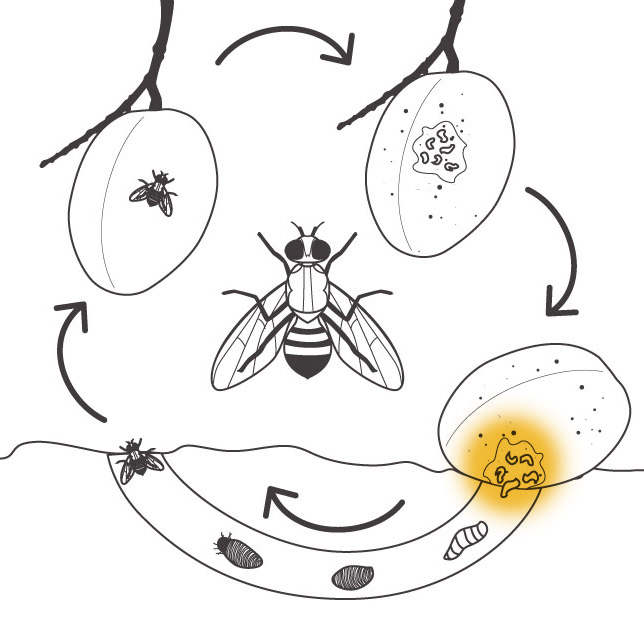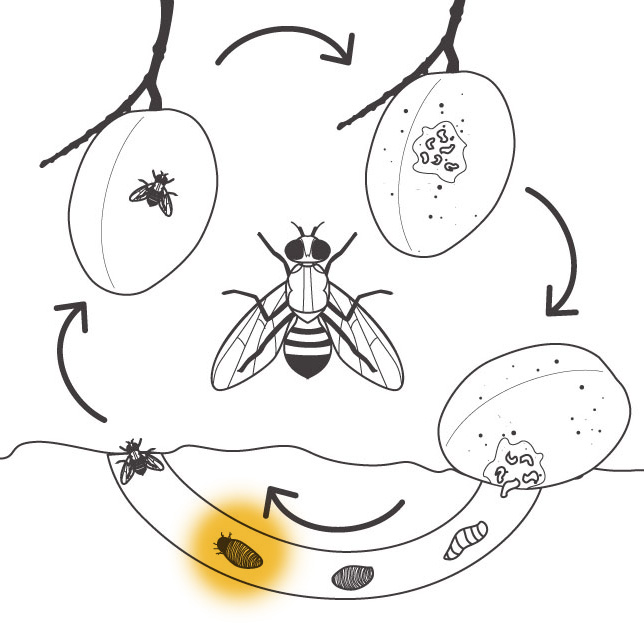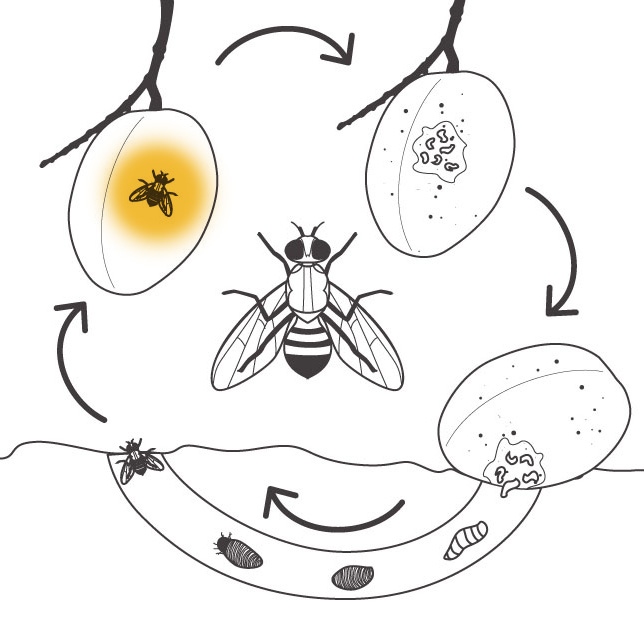The fruit fly life cycle
During its lifetime, a female fruit fly can lay up 400 eggs. That makes for a lot of life cycles.
During the fruit fly life cycle, there are four unique stages:
- egg
- larvae
- pupae and
- adult.
Understanding the unique stages can be extremely helpful in identifying, preventing and controlling fruit fly.
Life stages
 The female adult fly lays 1–20 eggs, typically in maturing and ripening produce. In 2–4 days, eggs hatch and larvae emerge.
The female adult fly lays 1–20 eggs, typically in maturing and ripening produce. In 2–4 days, eggs hatch and larvae emerge.
Identification tips: In spring, look for blemishes on produce, mating adult fruit flies in shady areas.
 The larvae (or maggots) feed inside the fruit and are accompanied by various bacteria that are introduced when the female fly lays its eggs.
The larvae (or maggots) feed inside the fruit and are accompanied by various bacteria that are introduced when the female fly lays its eggs.
The activity of the maggots and the bacteria causes the fruit to rot internally, and often affected fruit will fall from the tree earlier than ripened fruit.
Identification tips: In late spring, look for blemishes on produce or unripe fruit falling, and test by opening fruit to see if larvae or rot are present.
 Eventually, all larvae-infected fruit will fall to the ground, where the mature larvae burrow out of the fruit and into the soil.
Eventually, all larvae-infected fruit will fall to the ground, where the mature larvae burrow out of the fruit and into the soil.
In the earth, larvae become inactive and change into oval-shaped, light to dark brown, hard pupae.
It’s inside this case (similar to the cocoon or chrysalis formed by butterflies) that the adult fly develops. Unlike the previous stage, you are unlikely to recognise the presence of fruit fly pupae in the ground.
Identification tips: In late spring to early summer look for fallen, rotting produce and investigate for visible larvae or maggots.
 How quickly the fruit fly emerges completely depends on the season. In the summer, it can take as little as 7 days, in the winter it can take up to several months.
How quickly the fruit fly emerges completely depends on the season. In the summer, it can take as little as 7 days, in the winter it can take up to several months.
Once out of the ground, the adult fly looks for the nourishment it needs to reach maturity, breed, and lay eggs in new season crops. At this stage of the life cycle you may be able to recognise adult flies landing on or sheltering amongst vegetation or landing on fruit. Under good conditions, fruit flies develop from eggs to adults within four to five weeks.
Identification tips: Throughout spring and summer, look for fruit flies in shady areas, feeding off bacteria on trees, and laying eggs in fruits and vegetables.